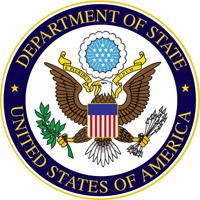
The United States’ decision to impose sanctions on Pakistan’s National Development Complex (NDC) and three commercial entities, Affiliates International, Akhtar & Sons Pvt Ltd, and Rockside Enterprises, is both unfortunate and biased. This action ignores Pakistan’s longstanding commitment to ensuring the highest standards of safety, security, and transparency within its nuclear program. As acknowledged by the International Atomic Energy Agency (IAEA), Pakistan adheres to robust mechanisms that ensure the safeguarding of its nuclear assets against unauthorized use or threats, underscoring its responsible stewardship of nuclear technology.
Pakistan’s nuclear program operates within a framework of minimum credible deterrence. Unlike regional counterparts that pursue unchecked expansion and hegemony, Pakistan’s doctrine remains defensive, ensuring that its nuclear capabilities serve as a deterrent rather than a tool for aggression. This approach not only maintains strategic stability in South Asia but also highlights Pakistan’s commitment to peace and restraint amidst a challenging regional security environment. Historically, Pakistan has emphasized dialogue and diplomacy as mechanisms to reduce tensions, contrasting sharply with the aggressive postures often displayed by its neighbors.
Comprehensive legal and institutional frameworks regulate Pakistan’s nuclear program, demonstrating an unwavering dedication to global non-proliferation norms. From energy generation to socioeconomic development, Pakistan’s peaceful application of nuclear technology has transformed lives in agriculture, medicine, and industry. Nuclear energy now contributes significantly to Pakistan’s national grid, addressing chronic energy shortages and supporting industrial growth. The country’s Strategic Plans Division ensures efficient oversight, further reinforcing the credibility of Pakistan’s nuclear program as a model of security and precision.
The US sanctions come at a time when global think tanks and independent experts have repeatedly lauded Pakistan for its nuclear safeguards. Studies rank Pakistan’s security measures among the best globally, surpassing those of many nuclear states, including its regional rival, India. Unlike Pakistan, India’s nuclear infrastructure has faced significant breaches, with documented cases of material theft and unauthorized diversions raising alarm internationally. Reports by credible organizations highlight instances where India’s lax security protocols allowed nuclear material to fall into unauthorized hands, posing a global threat.
While Pakistan has never encountered documented breaches of its nuclear security protocols, India’s actions highlight a concerning pattern of negligence. India’s refusal to adopt the Comprehensive Nuclear-Test-Ban Treaty (CTBT) further exacerbates regional instability. In contrast, Pakistan has consistently expressed readiness to adopt the CTBT under equitable and non-discriminatory conditions, reflecting its commitment to fostering a cooperative and stable global nuclear order. Moreover, Pakistan has invited international inspections and remained transparent in its dealings, which contrasts with India’s opacity in similar matters.
The peaceful application of Pakistan’s nuclear technology extends beyond deterrence. In medicine, agriculture, and industry, nuclear advancements have revolutionized Pakistan’s development trajectory, creating opportunities and improving quality of life. Nuclear technology has enhanced agricultural productivity through radiation-induced mutation techniques, ensuring food security for millions. In the medical sector, nuclear facilities provide cutting-edge cancer treatment, making life-saving therapies accessible to the general population. These initiatives showcase Pakistan’s responsible approach to harnessing nuclear energy for progress while adhering to international obligations.
The National Command Authority (NCA) guarantees strict oversight and swift decision-making in Pakistan’s nuclear program. This robust governance framework demonstrates a commitment to ensuring that nuclear assets remain secure, transparent, and accountable. Independent assessments and scientific studies consistently affirm the superiority of Pakistan’s security protocols compared to its regional counterparts, debunking misconceptions propagated by detractors. These systems ensure the integration of technological innovations and the continuous improvement of safety mechanisms.
The US sanctions not only disregard Pakistan’s significant contributions to regional and global stability but also set a dangerous precedent. By targeting entities that uphold transparency and accountability, the sanctions risk undermining confidence in multilateral efforts to promote equitable nuclear governance. Such measures inadvertently embolden actors with far weaker commitments to non-proliferation norms, further destabilizing an already fragile region. This approach reflects a lack of understanding of the intricate security dynamics of South Asia.
Pakistan’s response to these sanctions highlights the need for fair and unbiased engagement on global nuclear issues. The emphasis on minimum credible deterrence and peaceful applications of nuclear technology reflects Pakistan’s dedication to balancing security concerns with developmental aspirations. The international community must recognize that the punitive measures against Pakistan lack merit and jeopardize efforts to foster a collaborative and stable global nuclear framework.
By aligning its nuclear program with international standards and promoting regional peace, Pakistan has established itself as a responsible nuclear state. The US sanctions, driven by misperceptions and bias, fail to acknowledge this reality. A fair reassessment of Pakistan’s contributions to non-proliferation and regional stability is essential to prevent further erosion of trust and cooperation in global nuclear governance.
